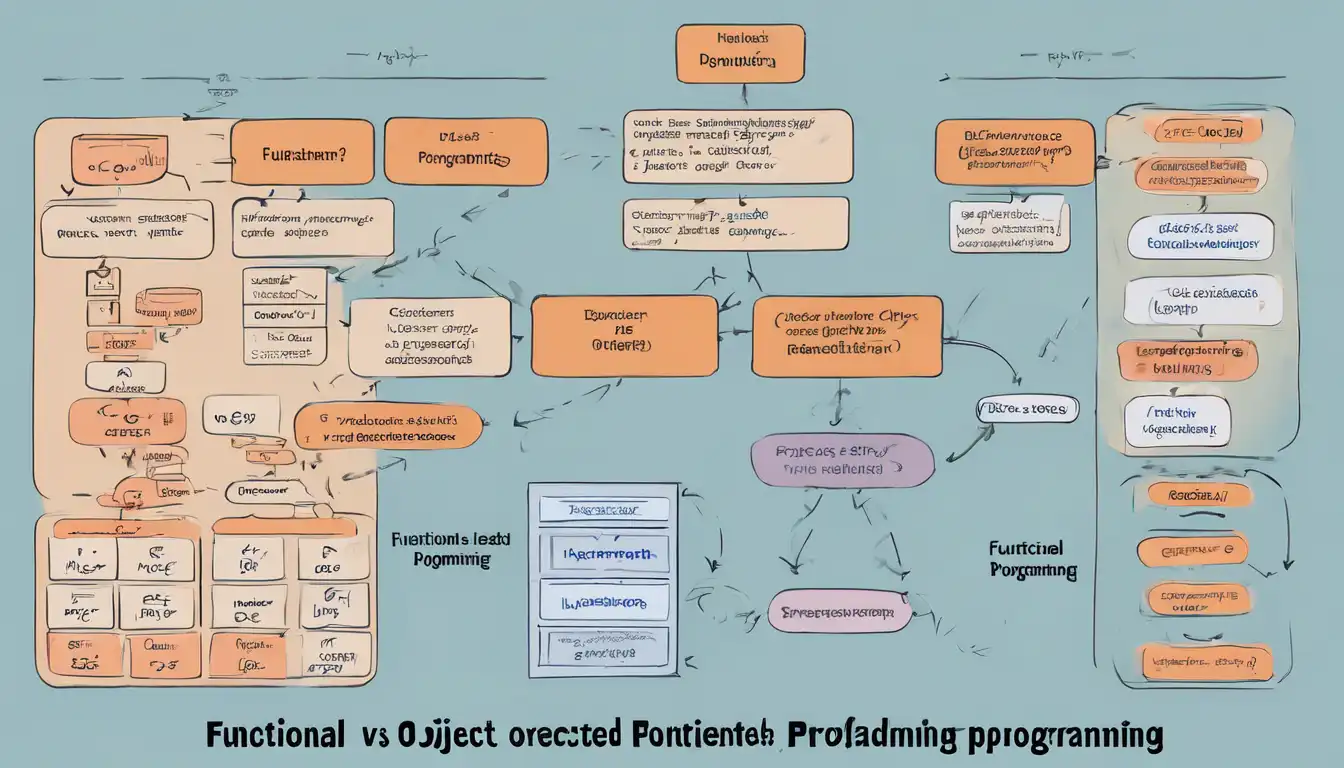Introduction to Programming Paradigms
In the world of software development, understanding the foundational paradigms is crucial for building efficient and scalable applications. Two of the most popular paradigms are Functional Programming (FP) and Object-Oriented Programming (OOP). This article delves into the core differences, advantages, and use cases of each, helping you make informed decisions in your projects.
What is Functional Programming?
Functional Programming is a paradigm that treats computation as the evaluation of mathematical functions and avoids changing-state and mutable data. It emphasizes the application of functions, in contrast to the imperative programming style, which emphasizes changes in state.
- Immutability: Data is immutable, meaning it cannot be changed after creation.
- First-class functions: Functions are treated as first-class citizens, allowing them to be passed as arguments, returned from other functions, and assigned to variables.
- Pure functions: Functions have no side effects and return the same output for the same input.
What is Object-Oriented Programming?
Object-Oriented Programming is a paradigm based on the concept of "objects", which can contain data, in the form of fields, and code, in the form of procedures. OOP focuses on the objects that developers want to manipulate rather than the logic required to manipulate them.
- Encapsulation: Bundling of data with the methods that operate on that data.
- Inheritance: A mechanism for creating new classes from existing ones.
- Polymorphism: The ability to present the same interface for differing underlying forms.
Comparing Functional and Object-Oriented Programming
While both paradigms aim to provide a structured approach to software development, they differ significantly in their methodologies and applications. FP is often praised for its suitability in concurrent programming and its ease of testing and debugging due to its stateless nature. On the other hand, OOP is lauded for its modularity and reusability, making it ideal for large, complex applications.
When to Use Functional Programming
Functional Programming shines in scenarios where immutability and statelessness are paramount. It's particularly useful in applications involving concurrent processing, data analysis, and anywhere side effects need to be minimized.
When to Use Object-Oriented Programming
Object-Oriented Programming is the go-to choice for applications that require a clear modular structure, such as GUI applications, enterprise systems, and games. Its principles of encapsulation and inheritance make it easier to manage and scale large codebases.
Conclusion
Choosing between Functional and Object-Oriented Programming depends on the specific requirements of your project. While FP offers advantages in terms of simplicity and predictability, OOP provides a robust framework for managing complexity. Understanding the strengths and limitations of each paradigm is key to leveraging their full potential in your software development endeavors.
For further reading on programming paradigms, check out our articles on Procedural Programming and Declarative Programming.
